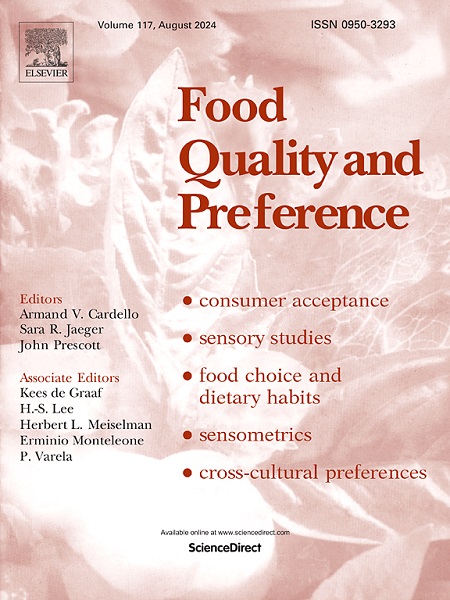Choice overload and experienced utility in the Chinese dairy market: The moderating role of decision styles and the impact of information nudging
IF 4.9
1区 农林科学
Q1 FOOD SCIENCE & TECHNOLOGY
引用次数: 0
Abstract
This study investigates the impact of choice overload on consumers' experienced utility—the subjective emotional and cognitive burdens encountered during decision-making—within the rapidly expanding Chinese dairy market. We specifically examine how increasing decision complexity, through heightened product attribute differentiation and the introduction of similar options, affects consumers' emotional responses and overall satisfaction. Utilizing a controlled experimental design with 248 participants, classified as either maximizers or satisficers based on their individual decision-making styles, we manipulated product attributes and options across three experimental conditions. Our findings reveal that heightened attribute complexity and the presence of similar product options significantly increase negative emotions, such as anxiety and confusion, while simultaneously decreasing decision satisfaction. These adverse effects are particularly pronounced among maximizers, who are predisposed to exhaustive evaluation. Crucially, the research demonstrates that information nudging, specifically highlighting positive product attributes, effectively mitigates these negative consequences of choice overload. This strategy simplifies the decision-making process, especially for maximizers, leading to enhanced consumer experiences. By integrating the concept of experienced utility, this study offers a deeper understanding of the psychological costs consumers bear when faced with complex choices in food consumption. The insights provided are valuable for marketers and policymakers seeking to reduce cognitive load and improve consumer satisfaction amidst the growing product variety in the dairy sector, fostering more efficient and consumer-friendly decision-making.
中国乳制品市场的选择过载与经验效用:决策风格的调节作用和信息推动的影响
本研究探讨了在快速扩张的中国乳制品市场中,选择超载对消费者经验效用的影响,即在决策过程中遇到的主观情感和认知负担。我们特别研究了通过提高产品属性差异化和引入类似选项来增加决策复杂性如何影响消费者的情绪反应和整体满意度。利用一项有248名参与者的对照实验设计,根据他们的个人决策风格,将他们分为最大化者或满足者,我们在三种实验条件下操纵产品属性和选项。我们的研究结果表明,属性复杂性的提高和类似产品选项的存在显著增加了负面情绪,如焦虑和困惑,同时降低了决策满意度。这些不利影响在最大化者中尤其明显,他们倾向于详尽的评估。至关重要的是,研究表明,信息推动,特别是突出积极的产品属性,有效地减轻了选择过载的这些负面后果。这一策略简化了决策过程,特别是对于最大化者而言,从而提升了消费者体验。通过整合经验效用的概念,本研究对消费者在面对复杂的食品消费选择时所承担的心理成本有了更深入的了解。提供的见解是有价值的营销人员和政策制定者寻求减少认知负荷和提高消费者满意度在乳制品行业不断增长的产品品种,促进更有效和消费者友好的决策。
本文章由计算机程序翻译,如有差异,请以英文原文为准。
求助全文
约1分钟内获得全文
求助全文
来源期刊

Food Quality and Preference
工程技术-食品科技
CiteScore
10.40
自引率
15.10%
发文量
263
审稿时长
38 days
期刊介绍:
Food Quality and Preference is a journal devoted to sensory, consumer and behavioural research in food and non-food products. It publishes original research, critical reviews, and short communications in sensory and consumer science, and sensometrics. In addition, the journal publishes special invited issues on important timely topics and from relevant conferences. These are aimed at bridging the gap between research and application, bringing together authors and readers in consumer and market research, sensory science, sensometrics and sensory evaluation, nutrition and food choice, as well as food research, product development and sensory quality assurance. Submissions to Food Quality and Preference are limited to papers that include some form of human measurement; papers that are limited to physical/chemical measures or the routine application of sensory, consumer or econometric analysis will not be considered unless they specifically make a novel scientific contribution in line with the journal''s coverage as outlined below.
 求助内容:
求助内容: 应助结果提醒方式:
应助结果提醒方式:


